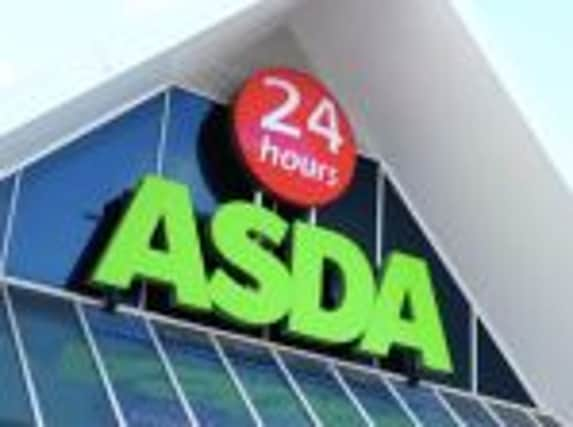Yorkshire supermarket chains beat big rivals


Leeds-based Asda saw sales rise 3.1 per cent over the 12 weeks to September 9, whilst Bradford-based Morrisons was hot on its heels with growth of 3.0 per cent, according to the latest Kantar Worldpanel figures. This was nearly double the growth of number two player Sainsbury’s, which saw sales rise 1.6 per cent.
Spanning the World Cup kick off in June through to the August bank holiday, the figures show consumers spent £228m more on alcohol, £178m more on soft drinks and £74m more on ice cream.
Advertisement
Hide AdAdvertisement
Hide AdFraser McKevitt, head of retail and consumer insight at Kantar Worldpanel, said: “The warm summer has been kind to the supermarkets’ convenience format stores as consumers shopped locally for drinks and barbecue supplies, collectively growing sales by 7.6 per cent compared to last year.”
He said that the figures show that Asda’s recovery is continuing after it attracted an additional 211,000 shoppers over the 12 week period.
“Asda rolled back prices on branded lines and at the same time, sales of its core own-label ranges rose 8.4 per cent,” he said.
“It has invested in the core Asda own label lines. Asda has always been about brands. It is also doing well online.”
Advertisement
Hide AdAdvertisement
Hide AdMorrisons benefited from its premium ‘The Best’ range, which grew four times faster than Morrisons’ standard produce.
Mr McKevitt said: “Morrisons is in a purple patch. It is doing well online and its stores are in growth too. ‘The Best’ is doing notably better. Morrisons is getting the basics right.”
While summer sales were boosted by the heatwave and the England team doing better than expected in the World Cup, Mr McKevitt cast doubt over whether this can last.
“The summer has provided a definite boost that is going to disappear. People were buying more stuff for the barbecue,” he said.
Advertisement
Hide AdAdvertisement
Hide Ad“We should keep an eye on like-for-like price increases. They could provide growth for the market, but they don’t necessarily provide profit.”
Another factor for consumer spending could be the Brexit negotiations
“We are entering a period of great uncertainty,” said Mr McKevitt.
“It’s six months to Brexit. People may have money, but will keep it in their pockets. People will be more cautious. Brexit could have an impact on prices.”
Advertisement
Hide AdAdvertisement
Hide AdMr McKevitt said retailers are looking to offer consistently lower prices on everyday items rather than one-off deals and they have all reduced promotions
“That being said, consumers may not feel like they have more money in their pockets – grocery inflation has now reached 2.0 per cent, adding £1.64 to each household’s weekly shopping bill,” he said.
At the current rate, these price increases add up to an extra £85 per home annually.
Mr McKevitt said: “The £85 a year increase applies to buying the same basket, but you don’t have to buy the same. People look for cheaper brands or own label. Or they buy cheaper in another retailer.”
Advertisement
Hide AdAdvertisement
Hide AdAldi was the UK’s fastest growing supermarket in the latest period – sales rose 13.9 per cent with nearly half of this growth coming from the fresh and chilled aisles.
Its discount rival Lidl also outpaced the market with sales up 8.3 per cent.
Both retailers increased sales of branded products at a much faster rate than overall market growth, although these household brand names still only account for 8 per cent of Aldi’s and 13 per cent of Lidl’s sales.
Mr McKevitt said: “As speculation mounts over the launch of Tesco’s discount retailer Jack’s, it’s worth remembering how quickly rivals Aldi and Lidl have grown their market share.”